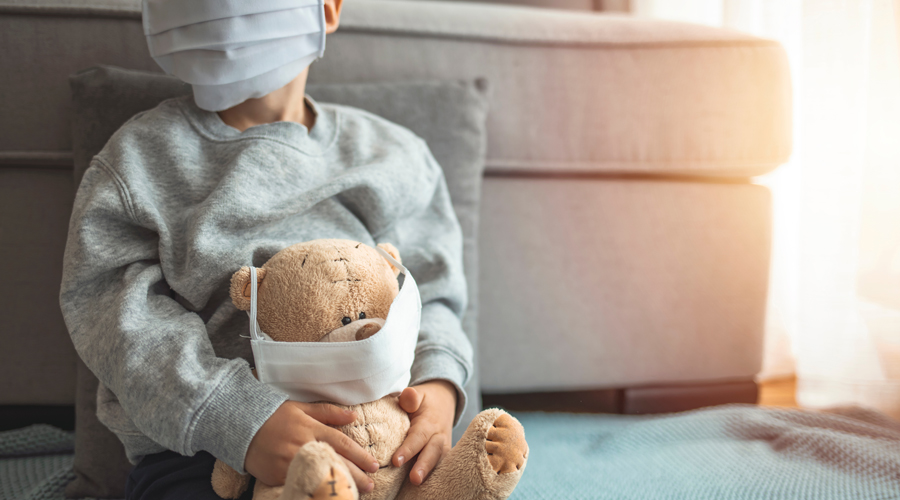Children from financially deprived homes are being pushed into suffering a loss of learning once again with centres shutting down because of a rise in Covid cases, those who work with the children said.
The surge in infections and instances of more children getting the infection has led to several NGOs in and around the city closing down their centres.
In the past several months, students had started going to the centres. Many of them were being provided with remedial classes to compensate for the loss suffered during schooling at home to help them reach the level of the class they study in.
At least one NGO had started a project of taking a bus to neighbourhoods to hold classes for children aged four to six years.
The NGO had drawn up a plan to extend the project to children in the age group of six to nine, where teachers would travel to their localities and take classes in the bus. But the plan had to be suspended even before it could take off.
“For the pre-primary and primary children, this intervention is important because it is the time when they start learning to write. With a teacher in front of them they can be guided and monitored to see how they are writing. This is getting impacted,” said Ananya Chatterjee, the school administrator at NGO Calcutta Rescue.
Most of the students are first generation learners and their parents cannot help them write. Teachers cannot be sure how much of their work is being done by elder siblings without the student actually learning to write, said Chatterjee.
“For older children, they have moved to a new class and new concepts and topics are being introduced in class. Teaching the same portion online and in a classroom is not the same. It is much more challenging online,” she said.
Unlike last year, with parents still going out to work, the children’s access to mobile phones for online classes is far more limited now.
“For mainstream schools, they have been able to move back to online classes but for our children the access to devices is severely restrained this time. Some of them might get a phone only at 11 at night,” said Manjusmita Bagchi, the associate director at NGO Ek Tara, which primarily works in Topsia and Tiljala.
Ek Tara had been conducting tele-classes last year when teachers would call the students over the phone twice a day and monitor their progress.
There were instances when the staff of the NGO distributed the worksheets at home, which is a challenge now amid rising Covid cases.
“This time, the fear of infection among people is much more and mobilising people is becoming difficult,” said Bagchi.
Asking students to come to the centres in small batches is also not an option now.
“If even one student gets infected under the circumstances it will be difficult to provide medical care,” said Arjun Dutta, the president of Calcutta Social Project.
The heads of several NGOs fear dropouts would be much higher this time.
“Last time, there was a dropout of 10 per cent and we went back to their houses to convince parents to send them back to school. But with another gap, we fear many of the children will lose the urge to study. In many of their homes there is no atmosphere of studies,” said Tanmoy Patra, the founder of Howrah Vivekananda Siksha Kendra.
It is not only their academic progress but also their overall grooming and social interaction that is getting impacted.
“At our centre, we develop their sense of hygiene and overall personality, too,” said Patra.










